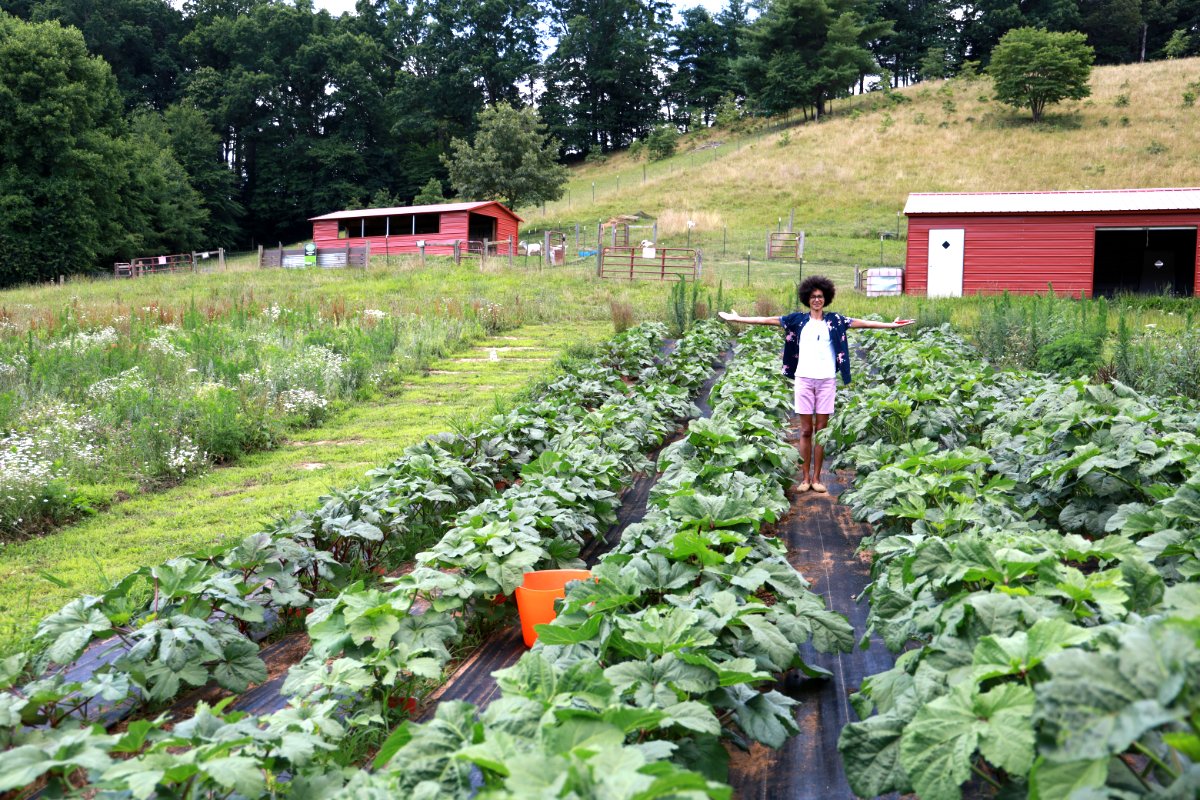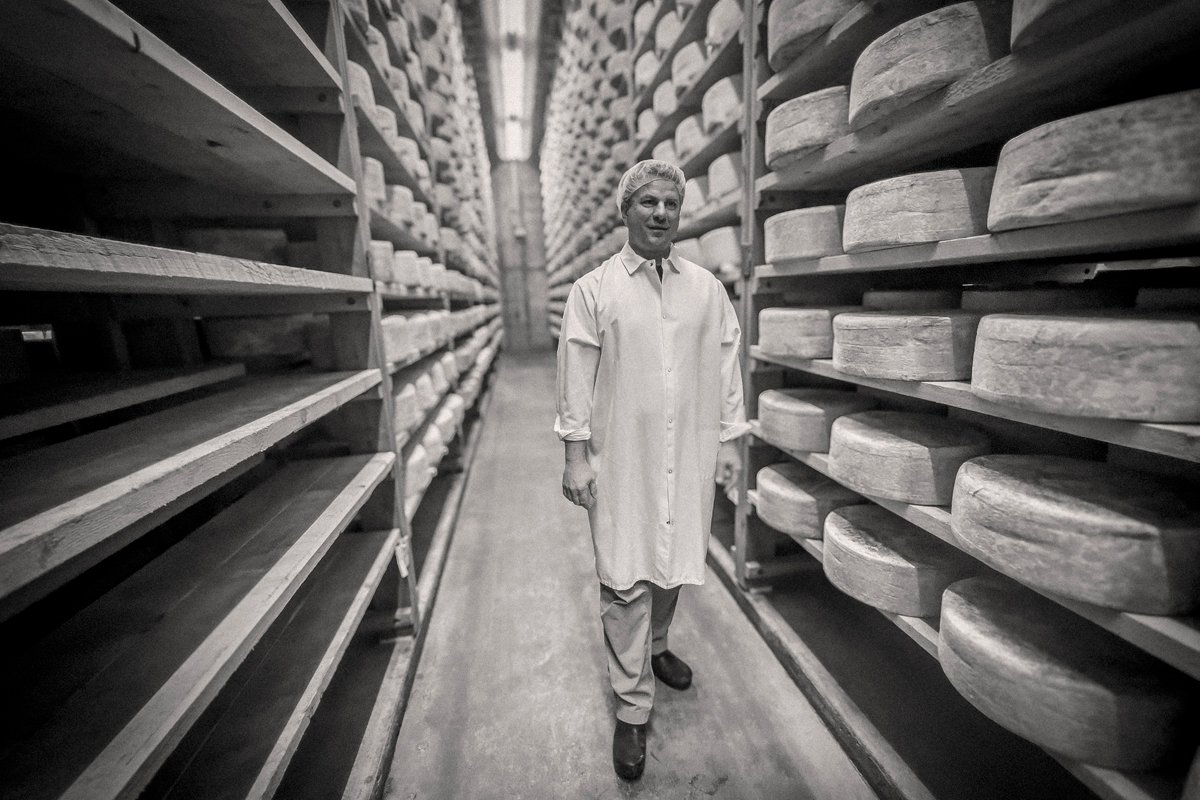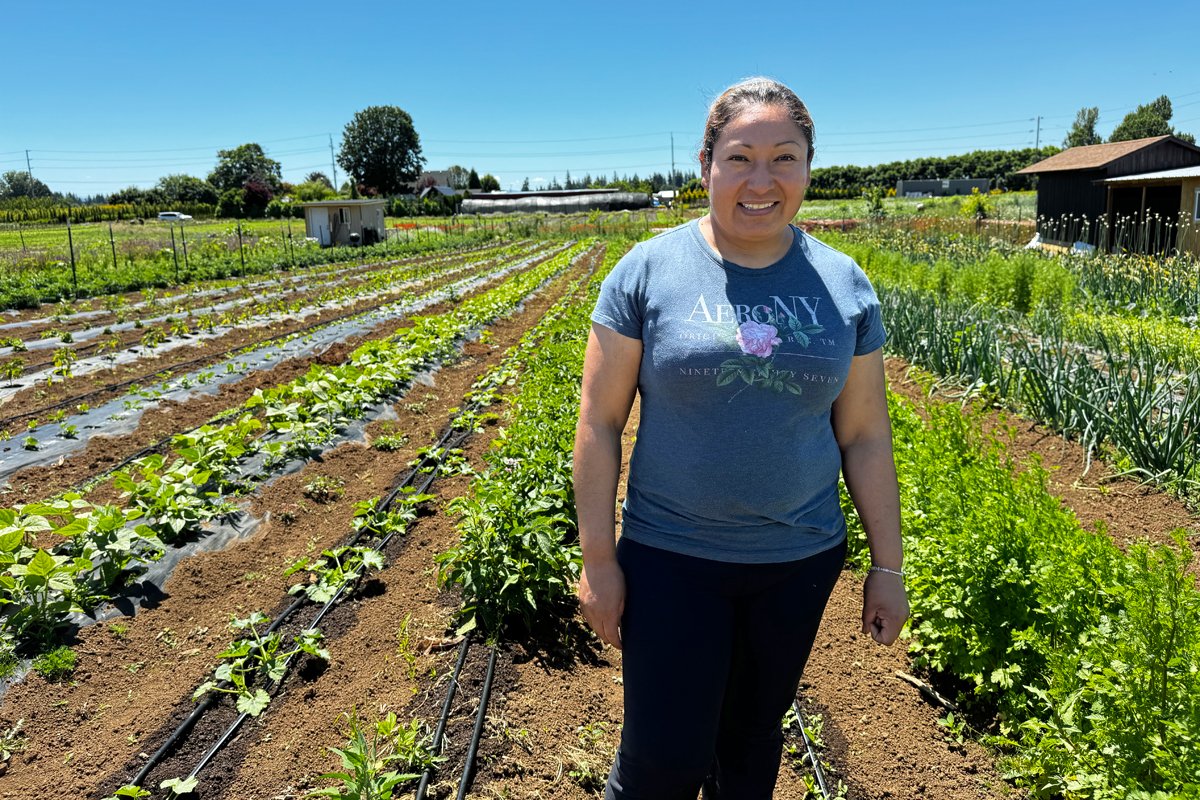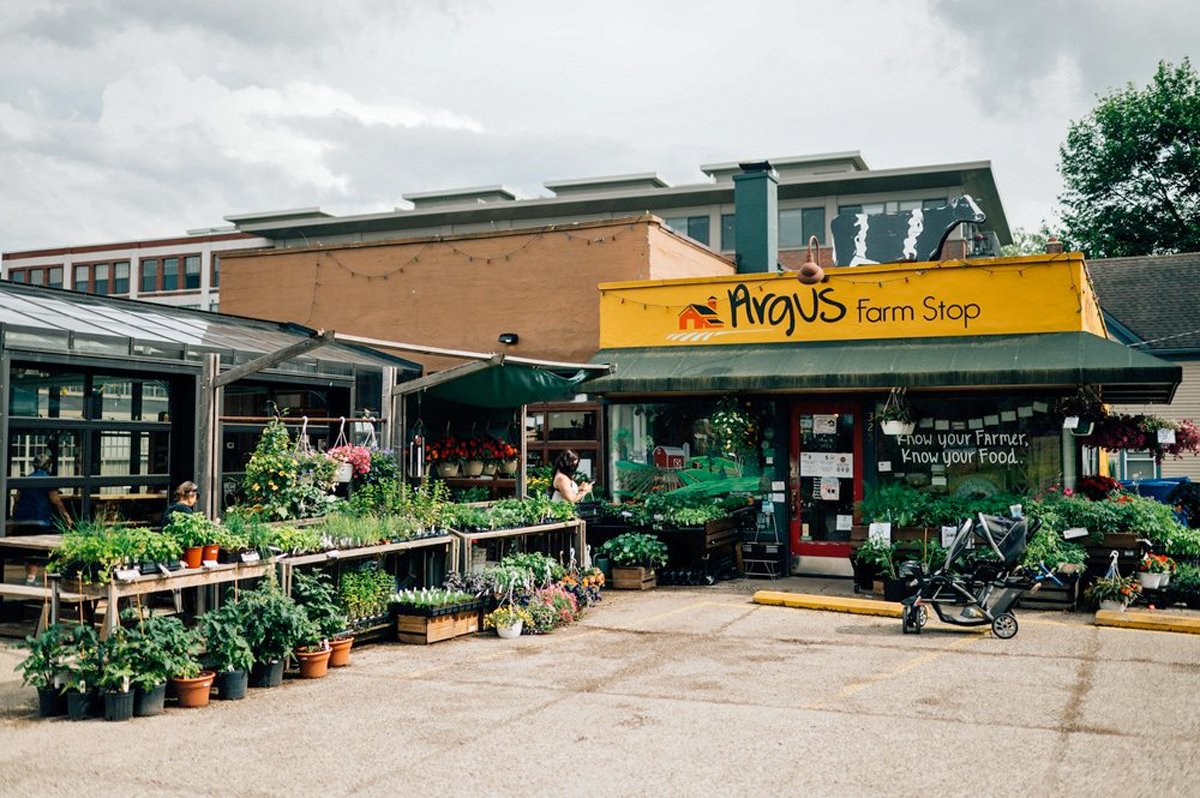Climate change is here, and the news is dire. We share our recent stories of the many food system innovators finding ways to mitigate damage, increase resilience, and adapt to our ever-changing realities.

Climate change is here, and the news is dire. We share our recent stories of the many food system innovators finding ways to mitigate damage, increase resilience, and adapt to our ever-changing realities.
August 1, 2023

Zoe Adjonyoh, author of Zoe’s Ghana Kitchen, stands in the field during a 2021 visit to see the okra variety trial. (Photo courtesy of Chris Smith)
This summer, the world experienced the hottest week on record, with seven consecutive days of off-the-charts temperatures, and many places are experiencing other extremes, including deadly floods, droughts, and wildfires. These severe conditions have a tremendous impact on our food system, affecting everything from crop yields to working conditions on farms.
While agriculture is a major contributor to climate change, it can also play a significant role in mitigating the impacts—and we at Civil Eats make a concerted effort to focus on solutions in our coverage. So far this year, we have shared numerous stories of creative thinkers across the food system pursuing efforts to reduce damage, increase resilience, and adapt to the new and ever-changing realities.
We have covered the incorporation of hedgerows to sequester carbon in soil, an ultracross seed-breeding project to create climate-adapted plant varieties, and the adoption of care-centered politics, among many other efforts. Below are some of our most important climate solutions stories from 2023.

Can This Beef Cooperative Become ‘the West’s Largest Climate-Smart Ranching Program’?
In an industry dominated by a handful of large meatpacking companies, member-owned Country Natural Beef has plans to document its ranchers’ practices and encourage a shift toward more regenerative practices.
Op-ed: Some Regenerative Farms Are Weathering California’s Unprecedented Rainfall
In the face of intensifying weather patterns like the series of storms pounding the West, regenerative organic farms are demonstrating that the key to resilience is working with nature.
Comic: Adapting Corn for Tortillas—and New Markets—in the Pacific Northwest
In this illustrated report, we explore how the Organic Seed Alliance is working with local farmers, scientists, and chefs to adapt crops to new environments—and the changing climate.
 An Ancient Grain Made New Again: How Sorghum Could Help U.S. Farms Adapt to Climate Change
An Ancient Grain Made New Again: How Sorghum Could Help U.S. Farms Adapt to Climate Change
Sorghum—popular among young, BIPOC, and under-resourced farmers—has extra long roots that allow it to withstand drought and sequester greenhouse gasses.
The Edges Matter: Hedgerows Are Bringing Life Back to Farms
Researchers have found that planting hedgerows helps farmers sequester carbon in the soil, manage pests, and provide habitat for pollinators and other wildlife.
Perennial Crops Boost Biodiversity Both On and Off Farms. Researchers Explain How.
Above and belowground, perennial crops including wheat, grasses, trees, and more provide habitat and nutrition to creatures that help make ecosystems whole.
 Farmers March for Urgent Climate Action in DC
Farmers March for Urgent Climate Action in DC
In this week’s Field Report, scenes from the Rally for Resilience, a push for “Product of USA” labeling on meat, new glyphosate research, and more.
Scientists Scramble to Help Bay Scallops Survive Climate Change
Researchers begin selective breeding and other initiatives in hopes of saving the East Coast’s last wild bay scallop fisheries.

These Farmers Recharged Groundwater by Catching Atmospheric Rivers
After years of drought and dozens of recent atmospheric rivers, Central California farmers have revamped an old practice: intentionally flooding fields for deep irrigation and restoration of underground aquifers.
A Radical Seed-Breeding Project Could Help Southern Farmers Adapt to Climate Change
The Utopian Seed Project is growing dozens of types of okra in one North Carolina field, creating genetic collisions that build new, resilient varieties. The group is working to adapt more food crops to the changing climate.
Climate Change Is Walloping US Farms. Can This Farm Bill Create Real Solutions?
Although it seems like everyone in D.C. is buzzing about a “climate farm bill,” some of the most impactful changes, including crop diversification and shifting diets from meat toward plants, are barely on the negotiating table.

Shell or High Water: Rebuilding Oyster Reefs Is a Climate Solution
Oyster reefs clean water, repair ecosystems, and help prevent flooding. But a lack of shells is forcing restoration projects across the country to seek out alternative structures.
Can Farming With Trees Save the Food System?
Unprecedented funding is flowing into a broad range of agroforestry practices, which can pull carbon out of the atmosphere and build farm resilience as the climate changes.
Bringing Oats Back to American Farms
Adding oats to a farm’s rotation can improve soil health and reduce fossil fuels, but the crop has all but disappeared in the U.S. Now, a nascent movement fueled by oat milk’s popularity may help reverse the trend.
 Some Farmers Are Skipping Tomatoes and Eggplants. Their Reasons May Surprise You.
Some Farmers Are Skipping Tomatoes and Eggplants. Their Reasons May Surprise You.
From climate risks to better work-life balance, a small but growing contingent of farmers is giving up summer crops to reap winter’s harvest.
How Focusing on Care Can Change Our Relationship to Food
Robert Gottlieb, author of “Care-Centered Politics: From the Home to the Planet,” discusses how the care economy has the potential to create critical food systems change and mitigate the climate crisis.
 The USDA Plan to Better Measure Agriculture’s Impact on the Climate Crisis
The USDA Plan to Better Measure Agriculture’s Impact on the Climate Crisis
In this week’s Field Report, news on the agency’s latest effort to invest in soil science and correct discrimination, plus reports on global hunger and pesticides’ impacts on birds.
Comic: To Fight Climate Change, This Research Farm Is Pioneering Regenerative Practices
In this illustrated report, we explore how the Maine-based Wolfe’s Neck Center is breaking new ground in soil health, soil monitoring, and other climate-smart technologies.

September 4, 2024
By paying top dollar for milk and sourcing within 15 miles of its creamery, Jasper Hill supports an entire community.
September 3, 2024

August 27, 2024

August 26, 2024

August 20, 2024

August 13, 2024

August 12, 2024

Like the story?
Join the conversation.